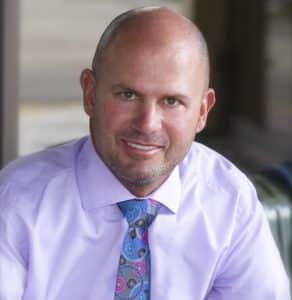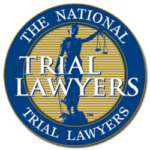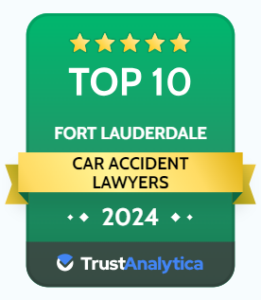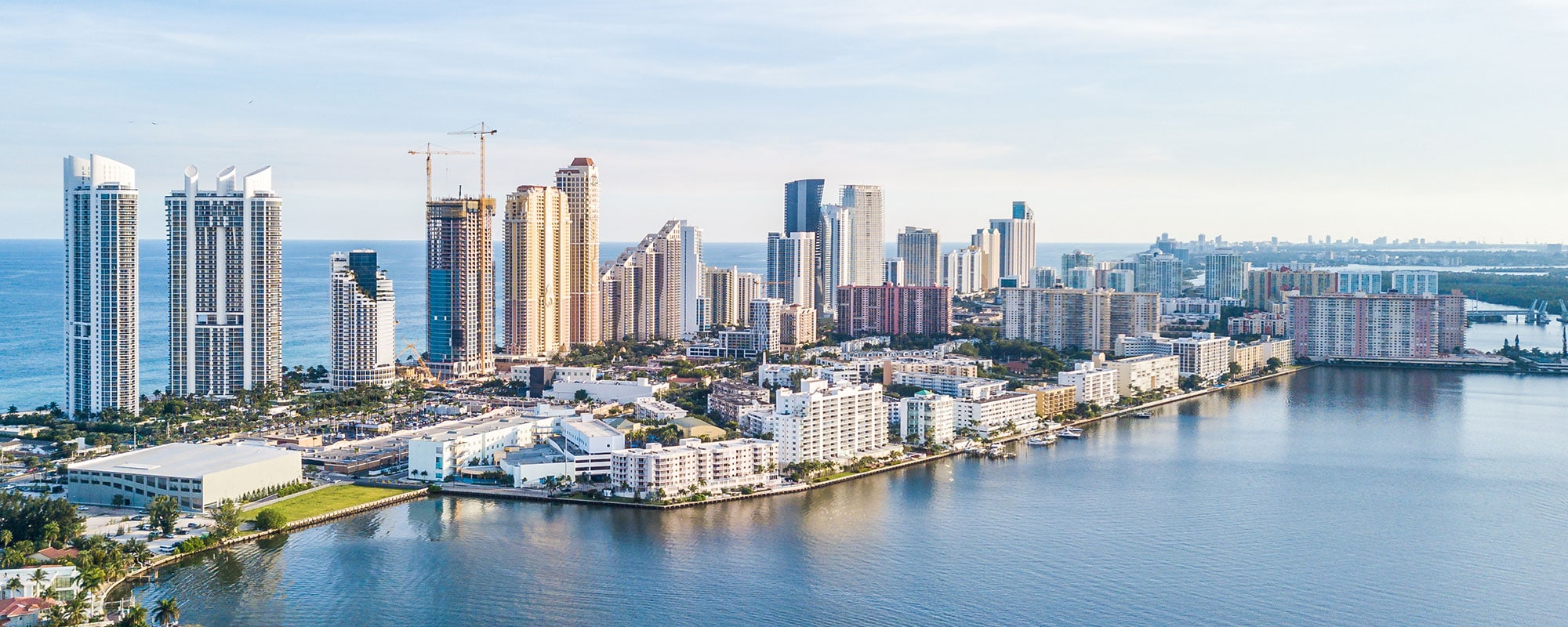Top-Rated Car Accident Attorney for Fort Lauderdale & South Florida
Did someone else’s negligence recently cause a car accident in Fort Lauderdale, FL, that hurt you or a family member? You may qualify to receive a substantial monetary award.
The team of experienced Fort Lauderdale car accident lawyers at Hollander Law Firm Accident Injury Lawyers can fight to help maximize your financial recovery. Call (954) 231-2320 today for a free consultation.
Since 1996, car accident injury victims have trusted our personal injury law firm. By combining the personal touch and attention of a small firm and the resources of a large firm, we’ve been able to make a meaningful difference in the lives of our clients.
Table of Contents
We’ve successfully recovered tens of millions of dollars in settlements and verdicts on their behalf. We’re ready to help you demand the money you deserve, too.
Contact us today for a free consultation. Our personal injury attorneys will listen to your side of the story, assess your legal options, and answer your questions.
Do I Need an Experienced Florida Car Crash Injury Lawyer for My Recent Car Crash?

Someone else caused your car accident, and now you’re struggling with the consequences of their actions. You deserve compensation for your medical expenses and other costs of your injuries as well as your pain and suffering. If you’ve been injured in a car crash in Fort Lauderdale, FL, and it was not your fault, a car accident injury lawyer can help you navigate the legal process and pursue compensation for your damages. They can assist with negotiating with insurance companies, gathering evidence, and representing you in court if necessary.
By filing a legal claim for damages, you can hold at-fault parties legally and financially responsible for the harm they caused. An experienced Fort Lauderdale personal injury attorney can make a massive difference in how your case resolves.
At Hollander Law Firm Accident Injury Lawyers, we’ve advocated for car accident victims in Florida for decades. With 28 years of experience under our belts, we’ve recovered millions of dollars in total compensation for our clients.
We understand that while money won’t make everything better, it can make life a lot easier in the months and years to come. That’s why we’re prepared to do everything in our power to secure a full financial award on your behalf.
Why Hire the Fort Lauderdale Car Accident Attorneys at Hollander Law?
Our team of Fort Lauderdale car crash injury lawyers specialize in representing victims of car accidents and personal injuries. With years of experience, our team of attorneys is dedicated to securing compensation for your damages, including medical expenses, lost wages, and emotional distress. We handle every aspect of your case, from investigating the accident and determining liability to negotiating settlements with insurance companies. If needed, we will aggressively advocate for your rights in court to ensure a fair outcome. When you hire our Fort Lauderdale car accident attorneys for help, here’s how we will help you get the compensation you deserve:
- Offer high-quality legal representation at all stages of your personal injury case
- Make sure that your case gets the personal attention it deserves
- Enlist the aid of experts as we investigate your crash
- Gather and analyze to determine causation, fault, and liability
- Handle conversations with insurance adjusters on your behalf
- Downplay your role and/or disprove claims that you contributed to your accident
- Negotiate with car insurance companies and other parties
- Bring your case to a jury, if necessary.
Our skilled and compassionate team of offers legal advice and consultations, guiding you through the often complex legal process. Whether you need assistance with filing a lawsuit, recovering damages, or simply understanding your legal options, we are committed to providing trustworthy and ethical representation. With a proven track record of success, we are dedicated to helping clients in Fort Lauderdale get the compensation they deserve.
We pride ourselves on our local expertise and our commitment to professionalism. Our client-focused approach ensures that each case is handled with the utmost care and attention, always striving for the best possible outcome for those affected by car accidents and personal injuries.
The reason that former clients recommend our firm to friends and family members is that we genuinely care about our clients. We also get results. Don’t hesitate to contact us to discuss your injury case with a Fort Lauderdale accident lawyer today.
How Common Are Car Accidents in Fort Lauderdale, FL?
Fort Lauderdale is the largest city in Broward County, so the area sees many car accidents annually.
According to crash data from the Florida Department of Highway Safety and Motor Vehicles (FLHSMV):
- 41,381 traffic accidents occurred throughout the Ft. Lauderdale area in one recent year.
- 23,071 people suffered injuries in these crashes, and 280 died.
- The area reported 705 total motorcycle accidents, with 46 fatalities.
- 716 bicycle accidents occurred, with 21 fatalities.
- 1,037 pedestrian accidents occurred, with 78 fatalities.
The area also reported 12,992 total hit and run collisions that injured 2,397 and killed 34. Additionally, 184 crashes involved alcohol impairment. Those crashes injured 108 and killed 12.
These numbers underscore the prevalence of serious car accidents in the Fort Lauderdale area and emphasize the need for effective legal representation from an experienced car accident attorney when someone causes an accident that hurts you or a loved one.
Leading Causes of Car Accidents in Fort Lauderdale
Car accidents occur every day. The most common causes of these collisions include:
Distracted Driving
If a driver doesn’t have their hands on the wheel, eyes on the road, and mind focused on the task at hand, accidents are much more likely to take place.
Unfortunately, even though many distracted driving practices are prohibited, that’s a common occurrence in the state of Florida. Distracted driving accidents have surged in recent years.
Drunk Driving

Operating a motor vehicle under the influence of drugs or alcohol is incredibly dangerous. In a city like Ft. Lauderdale, where there’s no shortage of spots to enjoy a few drinks, drunk driving isn’t all that uncommon.
Sadly, many of these impaired drivers cause accidents on the roads. The result, in many cases, is catastrophic injuries and fatalities.
Fatigued Driving
Studies show that driving while tired is perhaps just as dangerous – if not more so – than driving while drunk. Drivers who are on the road for long hours or long after dark tend to cause accidents.
Speeding
Speed is a factor in approximately one out of every four fatal car accidents in the nation. In Florida, there are thousands of speed-related crashes every year.
When a driver speeds, they don’t have the time and distance necessary to react and stop when traffic conditions change. The result is a devastating accident that can have a huge impact on the lives of those involved forever.
Aggressive Intersection Maneuvers
Like all cities in South Florida, Fort Lauderdale has some very crowded thoroughfares. Given the sheer volume of traffic and the number of vehicles and pedestrians on the road, intersections are particularly challenging to navigate.
It takes extra care to move through these crossroads safely. Unfortunately, many drivers take risks, including accelerating to beat the light or executing dangerous turns without checking to see if the coast is clear.
Road Conditions
Some accidents take place because the roads are dangerous or in disrepair. Sharp turns, poorly designed intersections, and potholes all contribute to accidents every year.
Defective Equipment
Accidents sometimes happen although all drivers involved exercised a reasonable degree of caution. In many instances, defective vehicles or safety equipment – such as faulty airbags or brakes – play a role.
Our Fort Lauderdale Car Accident Lawyers Near You Handle All Car Accident Injury Cases
When you’re involved in a car collision and need compensation, you deserve to work with a car accident attorney with extensive experience handling cases like yours.
At Hollander Law Firm Accident Injury Lawyers, we’ve been advocating for injured victims for more than 29 years.
During that time, we’ve handled all types of Fort Lauderdale car accidents, including:
- Rear-end accidents
- Front-end or head-on collisions
- Sideswipes and side impact collisions
- Speeding
- T-Bone accidents
- Single vehicle and multi-vehicle accidents
- Truck accidents
- Accidents involving bicycles and pedestrians
- Accidents involving large buses and mass transit vehicles
- Hit and run accidents
- Highway accidents
- Intersection accidents
- Red and yellow light accidents
- Accidents involving uninsured or underinsured motorists
Put our decades of experience and demonstrated ability to win to work for you. Contact our law office today to arrange your free consultation.
Florida Car Accident Settlement Amount Example
$4.3 Million Commercial Vehicle Auto Accident Payout
We secured $4.3 million in a personal injury case. A front-seat passenger in an SUV, who was not wearing a seatbelt, suffered a spinal cord injury leading to paraplegia when a commercial vehicle ran a stop sign and collided with the side of the SUV.
Does Florida Have No-Fault Insurance Rules?

Yes. If a car accident in Florida causes a bodily injury, you must turn to your own insurance company for compensation first. That’s because, under Florida’s no-fault system, all drivers must carry no-fault personal injury protection (PIP) insurance coverage.
When you suffer an injury, this PIP coverage is the primary source of compensation for your medical bills and injury-related costs – even if someone else is responsible for a crash.
That doesn’t mean that you can’t seek damages from other parties. You can pursue compensation from a third party and/or another insurance provider if your costs exceed what your insurance company will pay.
What Is the Liability for Car Accidents in Fort Lauderdale, Florida?
Florida state law provides that liability for an accident is shared by all contributing parties.
So, you could potentially file a legitimate car accident claim for damages against a:
- Negligent driver or passenger,
- Truck driver,
- Trucking company,
- Mass transit company (private or government-run),
- Bicyclist,
- Pedestrian,
- Motorcyclist,
- Product manufacturer,
- Negligent party’s employer,
- Government agency.
Hollander Law Firm Accident Injury Lawyers will investigate your motor vehicle accident and work diligently to gather evidence that helps us understand why the accident occurred and, in turn, who to blame.
With this information, our experienced car accident lawyers can pursue monetary damages from all responsible parties.
Most Common Fort Lauderdale Car Accident Injuries
Motor vehicle accidents can result in serious injuries.
Our Fort Lauderdale car accident attorneys are here to help you pursue a financial award for all of your crash-related injuries, including:
- Broken bones
- Burns
- Soft tissue damage (sprains, strains, bruising)
- Whiplash
- Concussion
- Neck, shoulder, or back injuries
- Spinal cord injuries
- Paralysis
- Traumatic brain injury
- Degloving
- Amputation
- Nerve damage
- Seatbelt injuries
- Airbag injuries
- Chest injuries
If someone caused a car crash that killed a close family member, we can pursue damages from the at-fault party through a wrongful death claim.
Money won’t bring your loved one back, but it can offer a sense of relief and help you get by for years to come.
Can I Still Recover Damages if I’m Partly Responsible for My Car Accident in Florida?
First, don’t panic. You can still recover compensation for your injuries, as long as you are not mostly responsible. Under Florida’s modified comparative negligence system, someone else must share most of the blame.
However, sharing fault will affect how much money you can ultimately receive for your car accident case. Your damages will decrease by your degree of blame.
Insurance companies love to try to use this comparative fault system to their advantage. Adjusters will search for any reason to shift blame to you. If these efforts succeed, insurers can significantly minimize your payout.
Our attorneys are all too familiar with these strategies. Fortunately, with us in your corner, you won’t have to worry. We’ll defend you vigorously and work hard to downplay your role in the crash.
What Damages Are Available for Car Accident Injuries in Fort Lauderdale, FL?

Car accident victims in Fort Lauderdale may be entitled to several types of compensation through legal action.
These damages fall into three main categories: economic damages, non-economic damages, and in rare cases, punitive damages. Additionally, specific damages are available in wrongful death cases.
Economic Damages
Economic damages compensate victims for direct financial losses resulting from the accident:
- Medical expenses
- Emergency room treatment
- Hospital stays
- Surgeries and procedures
- Medications
- Physical therapy and rehabilitation
- Future medical care needs
- Medical equipment and devices
- Lost Income and Employment Benefits
- Wages lost during recovery
- Lost future earning capacity
- Lost benefits and bonuses
- Lost retirement contributions
- Business opportunities missed due to injury
- Property damage
- Vehicle repair or replacement costs
- Personal property damaged in the accident
- Rental car expenses
- Towing and storage fees
Non-Economic Damages
Non-economic damages compensate for intangible losses and personal suffering:
- Pain and suffering
- Physical pain and discomfort
- Emotional distress
- Mental anguish
- Anxiety and depression
- Post-traumatic stress disorder (PTSD)
- Loss of quality of life
- Loss of consortium (impact on marital relationship)
- Physical impairment or disfigurement
- Loss of independence
- Reduced life expectancy
Wrongful Death Damages
In fatal accident cases, surviving family members may recover:
- Funeral and burial expenses
- Medical costs incurred before death
- Lost financial support and benefits
- Lost companionship and guidance
- Mental pain and suffering of surviving family
- Lost parental companionship for minor children
- Lost support and services to family members
Punitive Damages
While rare, punitive damages arise in cases involving:
- Gross negligence
- Intentional misconduct
- Reckless disregard for human life
- Drunk driving accidents
- Egregious safety violations
These damages are paid to the victim, but their primary purpose is to punish the wrongdoer and deter similar conduct. Florida law caps punitive damages at three times the amount of compensatory damages or $500,000, whichever is greater.
Our car accident attorneys will thoroughly assess your claim to identify all available compensation. We will then fight hard to help ensure you get the full and fair compensation you deserve.
How Long Do I Have To File an Injury Claim After a Fort Lauderdale Car Crash?
Yes. Florida imposes a strict two-year limitation on most personal injury lawsuits, including car accident cases. If you don’t have an attorney file suit for you within that time, you risk losing your right to seek compensation.
You may have less time to act if your crash involved a government entity or more time depending on when the accident occurred. However, these are the exceptions, rather than the rule.
Do not miss the deadline that applies to your case. Make sure that you have enough time to act by calling our Fort Lauderdale car accident attorneys for help immediately after a car wreck.
What Should I Do Immediately After a Car Accident in Fort Lauderdale?
We understand that a car crash is stressful. It’s easy to get overwhelmed in the hours and days that follow. However, what you do after the crash can – and will – affect any future legal claims you decide to file.
After a car accident:
- Stay at the accident scene. Leaving the accident scene can result in hit-and-run charges. Stay put and make sure everyone is okay. Wait for the police to arrive, and if possible, move to the side of the road.
- Contact the police. Make sure that your accident is on record. Call 911 or the local police. An officer and other emergency responders will respond to the scene to assess the situation and prepare an accident report. You will need the report if you decide to file an insurance claim or lawsuit later.
- Seek medical care. Go to the doctor after an accident. Accidents can cause severe internal injuries that are difficult to diagnose. By seeking medical treatment as soon as you can after a crash, you ensure that you receive the proper medical treatment and care. Additionally, your attorney needs your medical record to establish a relationship between the crash and your injuries.
- Don’t apologize for the crash or admit fault. You might feel bad for the accident, especially if you think that you’re (even partly) to blame. Don’t apologize or say anything that others could take as your admitting fault. That can end your personal injury claim before it even has a chance to start. Other parties will use your words of kindness against you. After you check to see if everyone is okay, just sit tight until the police arrive.
- Direct conversations to your lawyer. An insurance company might reach out to you right after an accident. They might want to discuss the details of the crash or offer you a quick car accident settlement. They do none of these things with your best interests at heart. Insurance companies want to end your case quickly and for the least amount of money possible. So, protect your interests and direct all communication to your experienced attorney.
If some time has passed since your accident and you’re at home or in the hospital recovering, your main concern is likely how to seek compensation for your injuries and losses.
At this point, you’ve already done the right thing by seeking medical treatment, and now it’s time to focus on your next steps.
One of the most important actions you can take is to speak with an experienced car accident lawyer who can guide you through the legal process and help you pursue compensation.
Start by gathering all the documents related to your accident and injuries, including your medical bills, accident report, and any communications with your insurance company. You need these things to build a strong case.
If you haven’t already, write down your recollection of the accident while it’s still fresh in your mind. This can help your lawyer understand the full picture of what happened.
While dealing with insurance companies, you may face pressure to accept a low settlement. However, working with a Fort Lauderdale car accident lawyer from Hollander Law Firm means you won’t have to handle those negotiations on your own.
Our attorneys can deal with the insurance company, ensuring that they consider all the damages you suffered, including medical expenses, lost wages or income, and pain and suffering.
Places in Fort Lauderdale, such as I-95, Broward Boulevard, and Federal Highway, are notorious for high traffic and frequent accidents. Whether your crash occurred on a busy highway or a quiet neighborhood street, our legal team is ready to help you seek compensation.
We offer a free case evaluation to all prospective clients. This way, you can learn about your legal options without any pressure. To schedule an appointment with our car accident lawyers, simply give us a call or connect with us online today.
Contact the Fort Lauderdale, FL Car Accident Attorneys Near You Today
When a negligent driver causes a car crash in Ft. Lauderdale that hurts you or a beloved family member. don’t wait to seek legal help to obtain compensation for medical bills, lost wages, property damage, and more.
Contact Hollander Law Firm Accident Injury Lawyers for help recovering the maximum compensation possible. As trial lawyers, we have the leverage to secure your full and fair compensation as efficiently as possible. However, when insurance adjusters refuse to offer you a fair deal, we are prepared to file a car accident lawsuit on your behalf and argue your case before a judge or jury.
Our Fort Lauderdale personal injury attorneys have gone toe-to-toe with insurance companies and walked away with life-changing results for our clients. Our respected team has won tens of millions in settlements and trial verdicts for accident victims in South Florida.
Together, our personal injury attorneys have decades of experience and are ready to go to the mat for you. All you have to do is give us a call and ask for our help. It’s that simple. As always, your first evaluation is 100 percent free.
See What a Recent Client Had to Say About Our Fort Lauderdale Car Accident Attorneys:
My experience with Hollander Law Firm following my car accident was nothing short of exceptional. They made a challenging time easier with their expertise and dedication. Gregg was my main point of contact, and his tireless efforts on my behalf resulted in a more than satisfactory settlement. I can’t express my gratitude enough.
⭐⭐⭐⭐⭐
Elsie C on Google Reviews
Read more of our client reviews here.
Fort Lauderdale, Florida Areas We Serve Near You
Bay Colony, Bermuda Riviera, Beverly Heights, Boulevard Park Isles, Central Beach, Chula Vista Isles, City View, Colee Hammock, Coral Ridge, Coral Ridge Country Club, Coral Ridge Isles, Croissant Park, Dillard Park, Dorsey Riverbend, Durrs, Edgewood, Flagler Village, Galt Ocean Mile, Harbordale, Harbour Inlet, Hendricks and Venice Isles, Idlewyld, Imperial Point, Lake Ridge, Las Olas Isles, Lauderdale Isles, Lofts of Palm Aire Village, Melrose Manors, Middle River Terrace, Nurmi Isles, Oak River, Palm Aire Village East, Poinciana Park, Poinsettia Heights, Progresso Village, Rio Vista, Riverland, Riviera Isles, Rock Island, Sailboat Bend, Seven Isles, Shady Banks, South Middle River, Sunrise Key, Sunset, Tarpon River, Victoria Park, Progresso Village, Lauderdale Beach, and more!
Local Fort Lauderdale, FL Auto Accident Repair Shops
- Differential Repair Shop
350 E Las Olas Blvd, Fort Lauderdale, FL 33301 - Southport Auto Repair
101 SW 17th St, Fort Lauderdale, FL 33315 - Master Tech
202 SW 15th St, Fort Lauderdale, FL 33315
*Disclaimer – we do not endorse these companies or profit from having them listed on our website.
Fort Lauderdale, FL Car Accident Infographic

